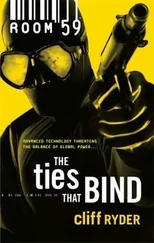So I took the dead little boy in to her, and she had him then, lying flat on her back, with one arm around him on her chest. Mavis was just pale and quiet with tears shining in her eyes; for a while then she was gone from me, gone from all the world and all of us still in it, retreated into someplace where none of us could reach her or interest her in county fairs or jokes about pickle exhibits and betting systems. None of that mattered now. And I began to think it was going to be bad trying to get the baby from her, that I was going to have to talk hard to get him released from those quiet, pale arms; but she wasn’t crazy; Mavis wasn’t mad. She was just deep hurt and saying good-bye to him, and finally she told me his name was John for my father; and then she held him up to me and I took him back to the nurses, while she fell off into a sad sleep.
So for a day or two I had three people to visit in the Holt hospital. Lyman wasn’t a lot to talk to, though; he was groggy with pain-killer and as distant as last Thursday. They had him in traction with a broken neck. And down the hall Mavis stayed quiet for a while, sleeping when she could, and when she couldn’t sleep staring in pain towards the far corner of the room. So it was Edith I talked to during that brief period after the car wreck. They had her arm in a cast, and she kept saying how sorry she was, like she had assumed all responsibility for the wreck, as if she had been driving the car herself.
“I’m so sorry,” she said.
“I know,” I said. “But it wasn’t anybody’s fault. It happened;
that’s all. And anyway, he’s out of it now. Maybe that’s something.”
“Don’t say that,” she said. “I was looking forward to him, Sandy. I wanted him to come down the road to see me. Like you used to, all these years ago.”
“Yes,” I said. “He would have liked that.”
“I think he would have,” Edith said. “I wanted him to.”
So I went from one room to another, did chores at home and returned, and then several days later, when both Mavis and Edith were strong enough to be released, we had a private funeral for him up on that rise above the barn. Lyman was still in traction in the hospital, so it was just the three of us — Mavis, still pale and quiet and in pain, and Edith with her arm in a white cast, and me with some stitches where the glass had cut my face. We buried the box, which seemed only half as big as a peach crate — it weighed nothing — buried it beside the little boy’s grandfather and great-grandmother. None of us said anything when the damp sand was packed firm on top of it. We couldn’t think of words that would make any difference.
Then it was finished. There was just the feeling afterwards of being empty. My wife couldn’t accustom herself to there being nothing inside her, nothing kicking and stretching anymore to plan for. She spent a lot of time in the room she had prepared for the baby. It had a crib in one corner with a new sheet stretched tight on the mattress; the store tag was still on the sheet; over the window there were fresh curtains. I found her up there one afternoon in front of the window staring towards the Goodnoughs’ house.
“I didn’t want to spoil their fun,” she said. “They were having such a good time.”
“Yes. You did the right thing.”
“I don’t regret that part of it. Do you?”
“No. I don’t regret that part of it. Will you come downstairs with me now?”
“In a minute,” she said. “I’m all right. I was thinking about Edith.”
A half mile east of us Edith had pain and Lyman to contend with. Lyman was becoming a child.
IT DIDN’T HAPPEN right away. It took almost ten years more for it to get so bad that there seemed to be only one option. But long before the end of 1976 there were already beginning to be too many signs to ignore — which looking at it now, while telling you about it this long quiet Sunday afternoon in April, reminds me — signs that pointed even then to his steady slide and eventual total collapse into an old man’s awful form of childhood. He became as cranky and unpredictable as a two-year-old. For one thing his car was gone.
They totaled his Pontiac. He never had another one. At about the same time we were burying that little box of ours on the hill above the barn, Bernie’s Wrecking Service winched Lyman’s last green Pontiac up out of the ditch weeds and towed it to town without salvaging even the tires. It’s still there in the junkyard west of the city water-treatment ponds. You might want to take a look at that too before you leave this area; the car stands in the middle of the weedy lot with the hood propped open by some high school kids who scrounged for cheap engine parts but gave up and left without thinking to close the hood. It’s getting pretty rusty. The windows are all smashed out, and the blood inside on the upholstery looks as if it was just coffee stains. In fact you would probably take it for that, believe it was just coffee stains, unless you happened to wonder why there was so much of it upside down staining the roof material around the dome light like it had puddled there.
Lyman stayed in the hospital for almost three months after the wreck. It was close to Halloween before Doc Schmidt released him. I drove Edith into town to bring him home, and he looked like maybe the nurses had gotten him up to go trick or treating. Around his neck he was still wearing a padded horse-collar affair, and his face showed green and yellow bruises; on his bald head there were crosshatched welts where they had stitched his scalp. When we walked him out the door and down the hospital steps, he seemed somewhat shrunken — shrunken and old-man brittle and confused. The sun hurt his eyes. On the way home when we passed Five Mile Bridge he stared rigidly ahead without a word.
At the Goodnough place I helped Edith get him out of the car and take him inside to rest. We laid him on the couch in the living room, where the postcards he had sent her during those twenty years of his travel and escape from the old man were still pinned in neat rows on the walls. He closed his eyes and went to sleep with his freckled hands lapsed onto his chest. Edith and I went out to the kitchen.
“Do you have time for coffee?” she said.
“I’ve got to get back to work. But Mavis and I will be checking every day to see how it’s going.”
“He’ll get better,” she said.
“Sure,” I said. “But you call us if there’s something you need. You don’t have to go this alone, you know.”
“We’ll see,” she said. “But thank you, Sandy. And tell Mavis thank you.”
“She’ll be over this afternoon. Now you get some rest too. You look tired.”
“There’s too much to do,” she said.
Lyman did get better but he never got well. He never fully regained that crotchety spryness and bounce that he had shown for those six years before the accident; now, more and more, he was just crotchety. He was irritated by little things of no importance — his toast was cold; his shoestring was missing its plastic end; his sock had a hole— and he would pout. In the living room you would find him staring vacantly at the postcards on the wall. In time the padded horse collar around his neck came off and the bruises on his face faded; the welts on his scalp became thin white scars, and he still dressed himself every morning in suit pants and dress shirt with a bow tie at the collar. But he didn’t appear so trim or city-dapper anymore; his clothes seemed to hang on him like they were at least one size too big, as if someone had bought his shirt and pants thinking he would grow into them. He didn’t. He developed an old man’s stoop. Towards the end he was using two canes.
Читать дальше












